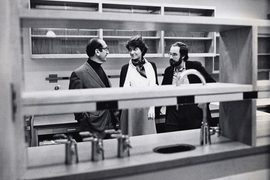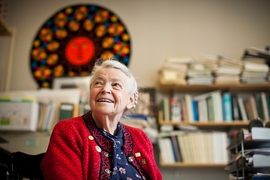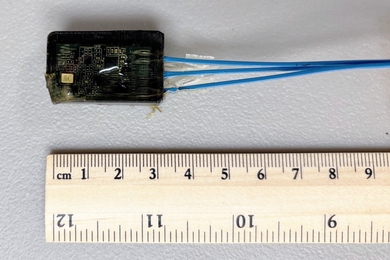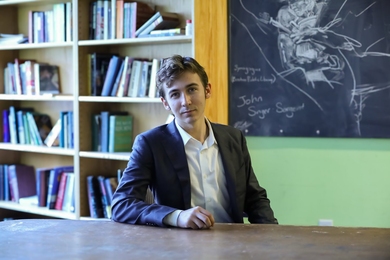Over a 50-year career as an MIT professor and pioneer in the field of nanoscience, Mildred Dresselhaus (1930-2017) helped unlock the secrets of carbon and paved the way for future scientists and engineers to study at the nanoscale. To pay enduring tribute to Dresselhaus and her extraordinary impact on MIT and the broader scientific community, MIT.nano has established the Mildred S. Dresselhaus Lectures.
The new event — which will be held annually in November, the month of Dresselhaus’s birth — will recognize a significant figure in science and engineering from anywhere in the world whose leadership and impact echo Dresselhaus’s life, accomplishments, and values.
The first distinguished lecturer, selected by a committee of MIT faculty, is Paul McEuen, the John A. Newman Professor of Physical Science at Cornell University and director of the Kavli Institute at Cornell for Nanoscale Science.
McEuen, whose research group boasts the tag line “anything, as long as it’s small,” will present a public lecture at MIT on Wednesday, Nov. 13, entitled “Cell-sized Sensors and Robots.” The talk will address a Cornell effort to combine microelectronics, optics, paper arts, and 2D materials to create a new generation of cell-sized smart, active sensors and microbots that are powered and communicate by light.
“Paul’s explorations of the electronic, optical, and mechanical properties of nanoscale materials are helping to lead us into the Nano Age. His contributions as a scientist are equaled by his generosity of spirit as a colleague and mentor,” says Vladimir Bulović, the founding faculty director of MIT.nano and the Fariborz Maseeh (1990) Professor in Emerging Technology. “We are delighted to launch the new Dresselhaus Lectures with someone whose creativity, impact, and character offer such a strong reminder of why Millie was so special to us.”
In addition to their research focus, Dresselhaus and McEuen share a connection through the Kavli Foundation. Dresselhaus received the Kavli Prize in Nanoscience in 2012 for her work studying phonons, electron-phonon interactions, and thermal transport in nanostructures.
Dresselhaus held several scientific leadership roles, including president of the American Physical Society in 1984, of which McEuen is now a fellow. She was well-known both off and on MIT’s campus, where she remained an active presence late into her career. Starting at Lincoln Laboratory in 1960, Dresselhaus went on to have appointments in the departments of Electrical Engineering and Physics. In 1985 she became the first woman at MIT to be honored with the title of Institute Professor, an esteemed position held by no more than 12 MIT professors at one time. Dresselhaus co-authored eight books and about 1,700 papers, and supervised more than 60 doctoral students.
Dresselhaus was also known for her mentorship and dedication to promoting gender equity in science and engineering. In 1971, she organized the first Women’s Forum at MIT to explore the roles of women in science and engineering. Such early efforts reflected a lifelong commitment to promoting gender equity in science and engineering and to encouraging women to enter these traditionally male-dominated fields.
Dresselhaus was also a strong faculty supporter during the development of MIT.nano, an open-access facility for nanoscience and nanoengineering set in the heart of MIT where researchers from different departments can encounter one another, sharing knowledge and ideas. “The vision is that this nano building will change the exploration of many things,” said Dresselhaus in 2016. “You have to be in an environment that’s permissive of crazy thoughts and crazy directions, which can lead to something really great.”
The inaugural Dresselhaus Lecture with Paul McEuen is free and open to the public. Advance registration is required.











